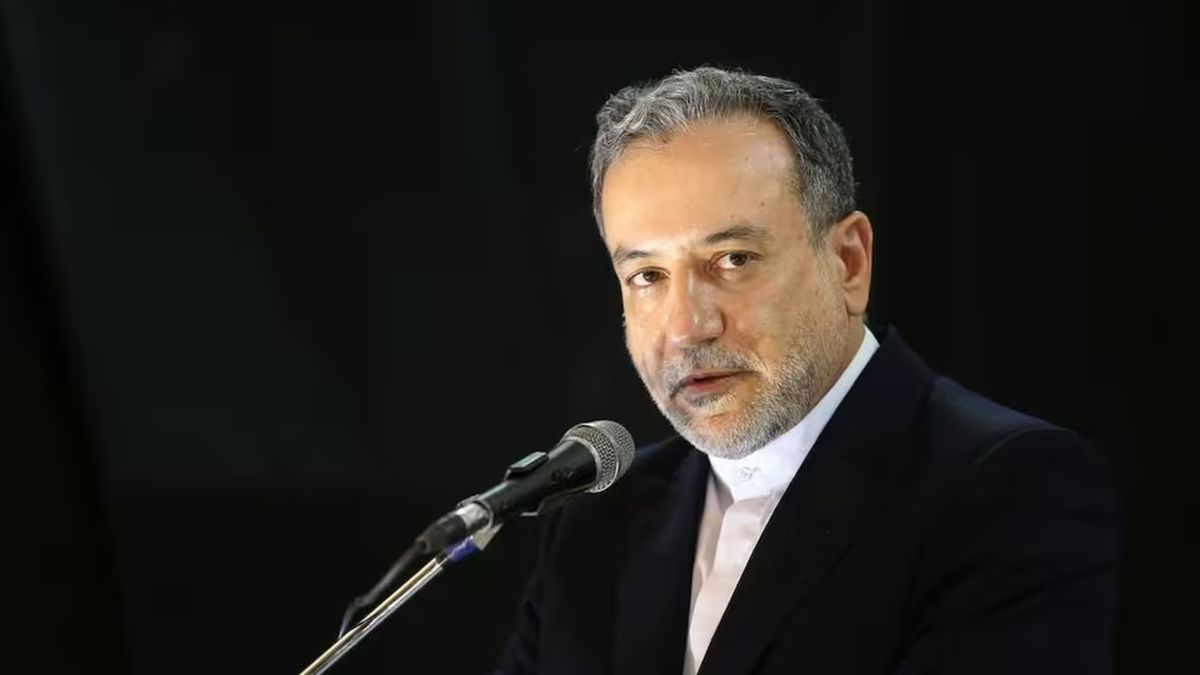Progress or breaking a taboo? Opinions on the breakthrough in the negotiations on a European asylum reform could hardly be more different. This is a problem, especially for the German Greens.
The plans for a far-reaching reform of the European asylum system, which were agreed with the support of the German government, are causing outrage and criticism. On Friday, German Green MPs condemned the project, which was supported by top politicians in their party, as immoral and incompatible with European values. Hungary and Poland, on the other hand, sharply criticized the planned duty of solidarity when accepting asylum seekers in Europe and announced resistance.
“As long as there is the PiS government, we will not allow any migration quotas, quotas for refugees from Africa, from the Middle East, for Arabs, Muslims or whoever, to be imposed on us,” said Poland’s national conservative Prime Minister Mateusz Morawiecki Warsaw. Hungarian State Secretary Bence Retvari spoke of abuse of power by the EU. Brussels now wants to distribute migrants “by force”.
Meanwhile, German government spokesman Steffen Hebestreit defended the plans. The previous asylum system in Europe no longer worked, he said in Berlin. At the meeting of the EU interior ministers in Luxembourg, an important step was taken, namely a “solidarity solution” on this issue.
This applies to the countries bordering the Mediterranean Sea, which are faced with a massive wave of refugees and do not want to be left alone. On the other hand, one does not want to accept that unregistered refugees travel through Europe. There needs to be proper procedures here. Interior Minister Nancy Faeser (SPD) made a similar statement. The EU has shown that it is capable of acting, she told the “Rheinische Post” (Saturday).
FDP leader Christian Lindner called the compromise a “success that can hardly be overestimated”. “A big step is being taken towards effectively protecting the EU’s external borders,” he told the “Münchner Merkur” (Saturday). SPD leader Saskia Esken emphasized that Faeser had succeeded in reaching an agreement in the European Council on a humanitarian and constitutional basis, “after we had to recognize for many years how the attitudes in the European Union to the asylum procedures diverged”.
Response to the 2015/2016 refugee crisis
The plans for the comprehensive reform of the EU asylum system were launched late Thursday evening by majority decision. Years of negotiations followed. The reform has been the subject of intensive work since the refugee crisis of 2015/2016. At that time, countries like Greece were overwhelmed with a mass influx of people from countries like Syria and hundreds of thousands were able to move on to other EU countries without being registered.
This actually shouldn’t have happened, because according to the so-called Dublin Regulation, asylum seekers should be registered where they first entered the European Union. This country is usually also responsible for the asylum application.
Illegal migration should be limited
The reform plans now provide for numerous additions and tightening to limit illegal migration. In particular, it is planned to deal much more harshly with people from countries that are considered relatively safe. In the future, after crossing the border, they will be taken to strictly controlled reception facilities under conditions similar to detention. There, it would normally be checked within twelve weeks whether the applicant has a chance of asylum. If not, it should be sent back immediately.
In the negotiations, the federal government had emphatically advocated that families with children be exempted from the so-called border procedures. In order to make the breakthrough possible, she ultimately had to accept that this could be possible.
Baerbock defends stance
In a letter to the Greens parliamentary group on Friday, Foreign Minister Annalena Baerbock defended her decision not to block the government’s approval. The decision was very difficult for her “as Foreign Minister, as a Green and also personally,” wrote Baerbock. She still thinks the agreement is right because it will improve the status quo for many refugees.
Other Green politicians had previously sharply criticized the approach. “The EU member states have lost their moral compass,” complained the spokesman for the German Greens in the European Parliament, Rasmus Andresen. There are fears of mass internment in violation of human rights at the EU’s external borders, as has been experienced in the past, for example in Moria, with untenable conditions that violate human rights.
Refugee workers are outraged
Human rights and aid organizations made similar statements. The Secretary General of Amnesty International in Germany, Markus N. Beeko, said it was an agreement at the expense of human rights and the people who needed the most protection worldwide. One is stunned how the federal government could celebrate yesterday’s agreement as a “political breakthrough”. It was “not a breakthrough, but a breach of human rights taboos, a disregard for the constitutional mandate and a broken promise of one’s own coalition agreement”.
Solidarity should become mandatory
In Germany, the plans for the new solidarity mechanism are much less controversial. He is supposed to ensure that some of the asylum seekers will be taken away from heavily burdened countries such as Italy and Greece in the future. Initially, 30,000 resettlement places per year are to be made available, of which a little more than 6,000 would be in Germany according to the agreed distribution key. Countries that do not want to take in refugees would be forced to pay compensation of 20,000 euros per person.
In addition, the reform plans should enable far-reaching cooperation projects with non-EU countries. According to the Commissioner responsible, Ylva Johansson, rejected asylum seekers could in principle also be deported to non-EU countries in the future. The only requirement should be that they have a connection to this country. What this should look like should be at the discretion of the EU member states that are responsible for the respective asylum procedure.
Tricky Connections
The federal government had actually advocated that a transit stay in a third country definitely cannot be recognized as a connection, but only, for example, by family members living in the country. If the regulation is passed, Italy, for example, could use it to send people coming across the Mediterranean back to the country if the government in Tunis agrees. In order to persuade them to agree, financial support could be provided.
A statement on the agreement also states the conditions under which authorities in the EU can declare asylum applications inadmissible without a detailed examination. This should therefore be possible if they are provided by refugees who have entered via a safe third country. The prerequisite for this should be that people can also be granted effective protection in this safe third country.
The EU Commission sees no risk of a veto
The next step in implementing the plans are negotiations with the European Parliament, which has a say in the matter. You could start as early as summer. Green politicians in particular hope that the plans for tightened asylum procedures there can still be weakened. The strongest group in the European Parliament, however, is the Christian Democratic EPP, which advocates a comparatively strict migration policy.
The EU Commission was correspondingly relaxed on Friday. “I think Parliament has also recognized the historic moment,” said EU Commissioner Johansson, who is responsible for the issue, on Friday at the sidelines of a meeting of justice ministers in Luxembourg. You do not expect particularly tough negotiations.
Source: Stern
I have been working in the news industry for over 6 years, first as a reporter and now as an editor. I have covered politics extensively, and my work has appeared in major newspapers and online news outlets around the world. In addition to my writing, I also contribute regularly to 24 Hours World.




